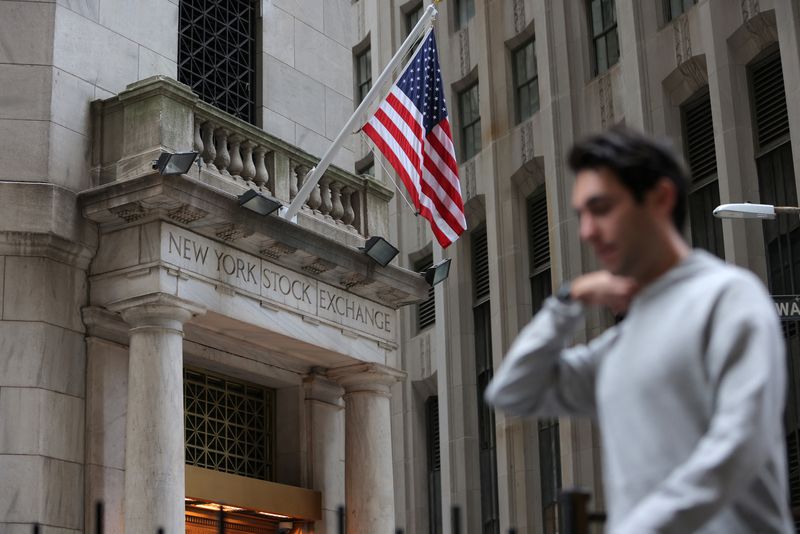This post was originally published on this site

The U.S. stocks fell modestly last week with the S&P 500 (SPX) closing the week 0.28% lower – the first time it recorded two consecutive weekly red candles since December. The index is essentially flat month-to-date (MTD), which is quite positive for bulls as the January rally is still holding in.
Looking at valuation, the forward 12-month P/E ratio for the S&P 500 is 18.0, below the 5-year average of 18.5% but above the 10-year average of 17.2.
The Dow Jones Industrial Average Index (DJI) has continued to hover around 34000, ending the week 0.13% lower. Nasdaq Composite Index (IXIC) was the only major U.S. index to close in green last week after dropping 2.4% a week earlier.
Looking ahead, this week’s key economic data releases include the Q4 GDP second release on Thursday while investors will also watch closely the core PCE inflation and the University of Michigan reports on Friday. Earlier in the week, the minutes from the January FOMC meeting will be released (Wednesday) while several Fed speakers are due to speak this week, including Jefferson, Waller, Williams, Bostic, Daly, Mester, Bullard, and Collins.
Q4 earnings session so far
As of Friday, February 17, 82% of S&P 500 companies have reported results for Q4 2022. According to FactSet’s data, 68% of S&P 500 companies have reported a positive EPS surprise and 65% of S&P 500 companies have reported a positive revenue surprise.
As far as closely watched guidance is concerned, 65 S&P 500 companies have issued negative EPS guidance and 20 S&P 500 companies have issued positive EPS guidance.
For this week, Home Depot (NYSE:HD) and Walmart (NYSE:WMT) have already reported earnings with both trading lower, thanks to the weaker-than-expected guidance for the full year.
Coinbase (NASDAQ:COIN) and Palo Alto Networks (NASDAQ:PANW) are due to report on Tuesday, while Nvidia (NASDAQ:NVDA) and eBay (NASDAQ:EBAY) are reporting on Wednesday after the market close. Finally, Alibaba (NYSE:BABA) and Booking (NASDAQ:BKNG) are due to report on Thursday.
What are analysts saying?
Here’s what analysts have to say about the upcoming trading week.
Goldman Sachs analysts: “Our risk appetite indicator (GSRAII), sentiment surveys and CTAs equity positioning registered the largest bullish turn (from very bearish levels). We think the speed of the rebound lowers the bar for a negative sentiment shock from here if macro data disappoint.”
Morgan Stanley analysts: “With the Equity Risk Premium at its lowest level since 2007, the risk-reward for stocks is extremely poor, particularly with a Fed that is likely far from done, and earnings expectations that are 10-20% too high. It’s time to head back to base camp before the next guide down in earnings.”
Citi analysts: “Last year’s losing trades have started 2023 very strongly. Global equities, especially tech stocks, are up. Oil and defensive stocks have lagged. However, markets often change leadership into the new year, only to revert back to the previous themes later on. We suspect 2023 will follow this well-worn pattern.”
UBS analysts: “We still expect a hard landing… We added a May rate hike to the projection, and point to the risks that the FOMC raises rates by an additional 25 bps at their June meeting too. But higher rates do not make us more bullish on the economic outlook.”
Credit Suisse analysts: “The bulls have been playing two key datapoints (global PMIs rising and core CPI falling), and thus the negative catalyst will come when either stops. Wages and service sector inflation (ex shelter) are correctly seen as the key to overall inflation, and we think both are stickier than the market currently perceives.”
Vital Knowledge analysts: “The current phase of unhelpful economic data may persist for a bit longer (including the Jan PCE on Friday 2/24) and the SPX’s valuation still isn’t appealing, but these are ephemeral stumbling blocks, which is why dips (down to 4000-4050) should be bought. Disinflation is likely to resume, central banks (including the Fed) are nearing the finish line, and earnings/growth are resilient.”
JPMorgan analysts: “With equities trading near last summer’s highs and at above-average multiples, despite weakening earnings and the recent sharp move higher in interest rates, we maintain that markets are overpricing recent good news on inflation and are complacent of risks. Equity markets appeared to read this month’s central bank meetings as dovish, while dismissing the weak Q4 earnings and the implications of the strong US payroll report for both monetary policy and corporate margins. We see the equity risk/reward as skewed to the downside, as upside potential for markets is likely fairly limited given stretched valuations and high rates, while downside could be meaningful, e.g. in case of a further weakening of activity, persisting inflation, higher terminal rates, or a resurgence of geopolitical risk.”

